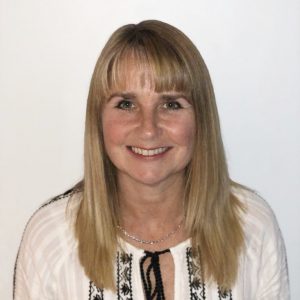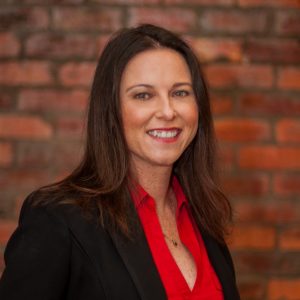Show me the COVID business practice that you randomly saw one day that is now an unconscious standard practice in your life (here’s hoping the TikTok reference lands).
With 20 percent of executives surveyed in the UK saying that at least one-tenth of their employees could work remotely two or more days a week going forward, it’s clear that the flexible style of working adapted during the pandemic is here to stay. But with hope on the horizon as lockdowns ease and vaccines roll out, what other pandemic lessons will entrepreneurs be taking with them into their new flexible work lives?
Streamlining onboarding
 Jane Hales’ market research consultancy, Sapio Research, was fortunate to grow 20% in 2020, and she expanded her team to match. But remote onboarding quickly laid bare the gaps in the consultancy’s hiring processes.
Jane Hales’ market research consultancy, Sapio Research, was fortunate to grow 20% in 2020, and she expanded her team to match. But remote onboarding quickly laid bare the gaps in the consultancy’s hiring processes.
“When you’re working remotely and not sitting next to a colleague, the on-the-job training becomes quite different. We soon realised there were holes in our induction processes. To remedy this, we created better documentation and a process that is much slicker than it was 18 months ago, which will continue to make for easier team integration, even upon our return to office. The team also love the achievement of ticking off their own developmental milestones too,” says Hales.
The learnings that have come from Sapio’s new staff onboarding processes have also been applied to its client onboarding.
“We’re much more process-oriented than we were prior to the pandemic. With our improved client onboarding, we can concentrate on the core project, thinking, creativity and execution, rather than getting bogged down by missing the ball on an admin task,” says Hales.
Going back to basics
 Robert Wilcocks, Director and Wealth Manager at Wilcocks and Wilcocks, a wealth management company, says that being busier than ever, coupled with transitioning to remote working, quickly made him “Zoomed out”.
Robert Wilcocks, Director and Wealth Manager at Wilcocks and Wilcocks, a wealth management company, says that being busier than ever, coupled with transitioning to remote working, quickly made him “Zoomed out”.
“Suddenly all of the things people usually put off when it comes to personal finance – like reviewing human insurances, updating wills and trusts – became prominent as people came to realise we are rather vulnerable and very mortal”, says Wilcocks. “My company tried to be a release valve to the financial anxiety of our clients, which quickly expanded to professional contacts and friends as well. We wanted to reassure clients, keep them in their seats, and not pack it in, which would’ve been a financial catastrophe. The qualitative benefits of a good financial planner – peace of mind, a sounding board, have proven invaluable in this pandemic.”
To keep up with his clients and their increased support needs, he’s since made a switch to more old school tech, the thing feared most by millennials – the phone call.
“Early on in the pandemic, I started to go on walks and speak to people on the phone. I would spend about two hours a day on the phone speaking with clients, colleagues, friends and family,” says Wilcocks. “I’d forgotten how nice it can be to talk on the phone instead of staring at a screen and talking simultaneously. And the ability to be active while managing an increased workload makes this way of working something I’ll keep as restrictions lift.”
Improving cross- office culture
 Rachel Irvine, CEO of Irvine Partners, a full-service public relations and integrated marketing agency with offices in London, Cape Town, Johannesburg, Nairobi and Lagos, says that the pandemic made clear the need for more cross-office culture and communication.
Rachel Irvine, CEO of Irvine Partners, a full-service public relations and integrated marketing agency with offices in London, Cape Town, Johannesburg, Nairobi and Lagos, says that the pandemic made clear the need for more cross-office culture and communication.
“Prior to the pandemic, our staff based in various offices were already working together and collaborating virtually. And our offices would meet face to face socially a few times a year to foster our company culture– last summer we had planned to fly staff into Cape Town to celebrate our ten year anniversary, but of course those plans have been shelved,” says Irvine.
“We have staff based in London with a manager in Johannesburg who have never connected outside of the virtual office, and thus have a relationship based largely on the clients they share. Having a great internal culture is important to us, especially when the pandemic was quite isolating, so we implemented monthly watercooler sessions for staff to get to know each other better on a personal level. We create rotating groups of around six employees who video chat for 30 minutes with the only rule being that they can’t talk about work. Even though our staff will soon be returning to their respective offices, our watercooler moments are here to stay to keep them connected, no matter where they are.”
The future of work
COVID-19 has fundamentally altered the way that we think about the concept of work, making the future harder to predict than ever before. What’s clear is that keeping practices in place that support collaboration and productivity will be at the heart of ensuring business success as we emerge from the pandemic.
Jane Hales, Robert Wilcocks and Rachel Irvine are all members of the London chapter of Entrepreneurs’ Organization (EO), a global network of 14,000+ entrepreneurs all of whom operate businesses earning a minimum of US$1 million in annual revenue. Jane Hales is the EO Accelerator Chair and Managing Partner of Sapio Research; Robert Wilcocks is an EO member and Director and Wealth Manager at Wilcocks and Wilcocks; and Rachel Irvine is an EO board member and CEO at Irvine Partners.

